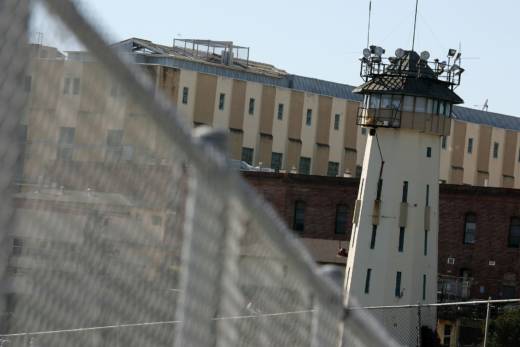A San Quentin inmate convicted of murdering a law enforcement officer died in April after overdosing on heroin, the Marin County coroner's office said Monday. It marks at least the third fatal overdose of a California death row inmate over a five-month span.
San Quentin Death Row Inmate Died From Drug Overdose, Autopsy Reveals

Miguel Magallon was found unresponsive in his cell around 6:15 a.m. on April 20. State prison officials reportedly pronounced him dead about 30 minutes later, but did not indicate how the 35-year-old inmate had died.
An autopsy determined his cause of death to be "acute heroin intoxication," said Roger Fielding, a chief deputy in the county coroner's office.
Fielding said that Magallon had "mild cardiomegaly," commonly referred to as an enlarged heart, and that methamphetamine, codeine and cannabis were also found in his body, factors that likely contributed significantly to his death.
"This case is another example of the way drug use in the prison really mirrors the trends in the wider community," said Dr. Matt Willis, Marin County's public health officer, whose paramedics are called to San Quentin when inmates are having suspected overdoses. In December, his office reported a spike in overdose-related calls from the prison.
"We're seeing more and more other substances, like meth, at play in opioid-overdose deaths statewide," he said. "As complex as the opioid epidemic already was, it's getting more complex. What we're calling the opioid epidemic now is more often a problem of combinations of drugs, in terms of overdose deaths."
A state prison spokeswoman said the agency continues to investigate how Magallon obtained illegal drugs.
Magallon was sentenced to death in 2009 for the 2004 murder of Michael Sparkes Sr., a Los Angeles County police officer.
The inmate's cause of death was announced just days after state lawmakers approved a sweeping plan to battle substance abuse in the state's prisons.
Herminio Serna and Joseph Perez, both condemned inmates who'd been convicted of murders, died at San Quentin in early December due to overdoses.
In May, Gov. Gavin Newsom proposed, as part of his revised budget, spending close to $400 million over three years to help inmates suffering from addiction.
For years, California has spent tens of millions of dollars to stop the flow of drugs into state lockups. Newsom's plan instead calls for shifting resources toward curbing demand by using medication-assisted treatment to help prisoners fight addiction.
That plan faced pushback from the California Legislative Analyst's Office and state Assembly staffers, who suggested the proposal be scaled back. Ultimately, though, the governor's full plan was approved by the Legislature.
Forty inmates died from overdoses in California's state prison facilities in 2017, the most recent data available, marking that year's fourth-most-common cause of death among state prisoners, according to California Department of Corrections and Rehabilitation officials. That same year, at least 750 inmates overdosed but survived after medical intervention.
In 2018, 997 prisoners were treated for drug or alcohol overdoses, CDCR reported.